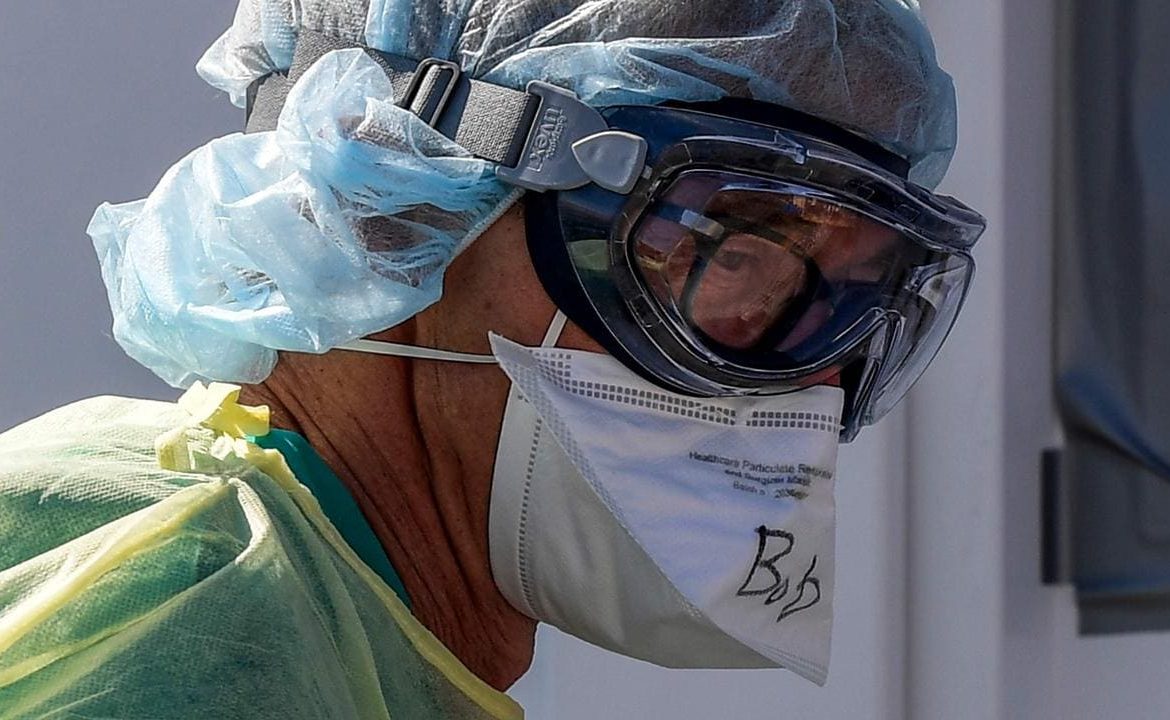The US has reached yet another grim pandemic milestone, putting even more pressure on authorities to approve and roll out a COVID vaccine.
On Wednesday the country recorded 3054 new coronavirus deaths, smashing the previous record of 2769 fatalities recorded on May 7, according to The COVID Tracking Project.
California, which is currently back in lockdown after an explosion of cases, also reached an unsettling new record.
The state recorded more than 30,000 cases in a single day, the highest 24-hour tally for any US state.
The virus is running rampant across almost every US state and with no blanket set of COVID safety measures in place for the country, it seems any hope of controlling the virus now depends on a vaccine.
US officials will reportedly meet on Thursday to examine the Pfizer-BioNTech vaccine. This vaccine is already being rolled out across the UK and there are hopes it could be given emergency authorisation in the coming days.
However, even if a vaccine is approved, it might not be enough to stop the country’s downward spiral.
Multiple recent polls indicate many Americans are still unsure whether they will choose to be vaccinated, while others have flat-out refused to ever get the jab.
RELATED: Virus expert debunks biggest COVID-19 vaccination myth
RELATED: When Australia will get the vaccine
A recent poll conducted by AP-NORC asked 1117 American adults whether they planned to get vaccinated when a COVID-19 vaccine becomes available.
The results, released on Wednesday, show just 47 per cent of respondents said they would get vaccinated against the virus.
Of the other respondents, 26 per cent said they wouldn’t get the vaccine and 27 per cent said they weren’t sure.
With many experts saying roughly around 70 per cent of the population would need to be vaccinated against the virus to achieve herd immunity, that last category of undecided people becomes crucial.
Another poll published on Wednesday conducted by Quinnipiac University found a higher percentage of people were in favour of vaccination.
The survey asked 978 registered US voters for their opinion on a coronavirus vaccination, with 61 per cent saying they would be willing to get vaccinated against the virus when a vaccine is approved.
Of the other responses, 33 per cent said they wouldn’t be willing to get the vaccination, while five per cent said they didn’t know.
But even though the majority of respondents said they would get a vaccine, most indicated they wouldn’t get it right away.
The results shows 41 per cent said they would likely wait a few months before getting the jab, compared to 37 per cent who would get it as soon as possible.
A survey of 2985 adults conducted by Gallup between October 19 and November 1 showed US citizens were warming up to the idea of a COVID-19 vaccine.
The results showed 58 per cent of Americans would get a COVID-19 vaccine, up from 50 per cent in September.
This showed a slight increase in willingness to get the vaccine, but 42 per cent were still adamant about not getting the jab.
Unlike the AP-NORC poll, there was no option for people who were undecided about whether or not to get the vaccine.
While many health experts have suggested around 70 per cent of the population would need to get vaccinated to reach herd immunity, the US’ top infectious disease expert Dr Anthony Fauci said it may need to be even higher.
The director of the National Institute of Allergy and Infectious Diseases told WUSA9 said there were different factors that needed to be considered when estimating how many people need to be vaccinated to reach herd immunity.
“There are two aspects of vaccination. One is for the individual health and safety. And the other is the impact on the dynamics of the outbreak,” Dr Fauci said.
“The more people that get vaccinated, the greater degree of protection of the entire community. That’s referred to often as ‘herd immunity’. You need a certain percentage of the population to be protected, either from having already been infected or getting vaccinated.
“We don’t know the exact percentage, but given the efficiency of spread of this virus, we imagine it is somewhere around 75 to 85 per cent or more.”
Dr Fauci said while polls aren’t always an accurate reflection of the whole population, they still show there many people in the community that are still against receiving a COVID vaccination
“Polls are not always accurate, but they’re telling us there is a serious situation here that we need to address,” he said.
“There is scepticism and reluctance on the part of some people. Sometimes because of lack of really appreciating what’s going on.”







